Rank 2 Sell pt1 5 to pt2 3 - Part 1

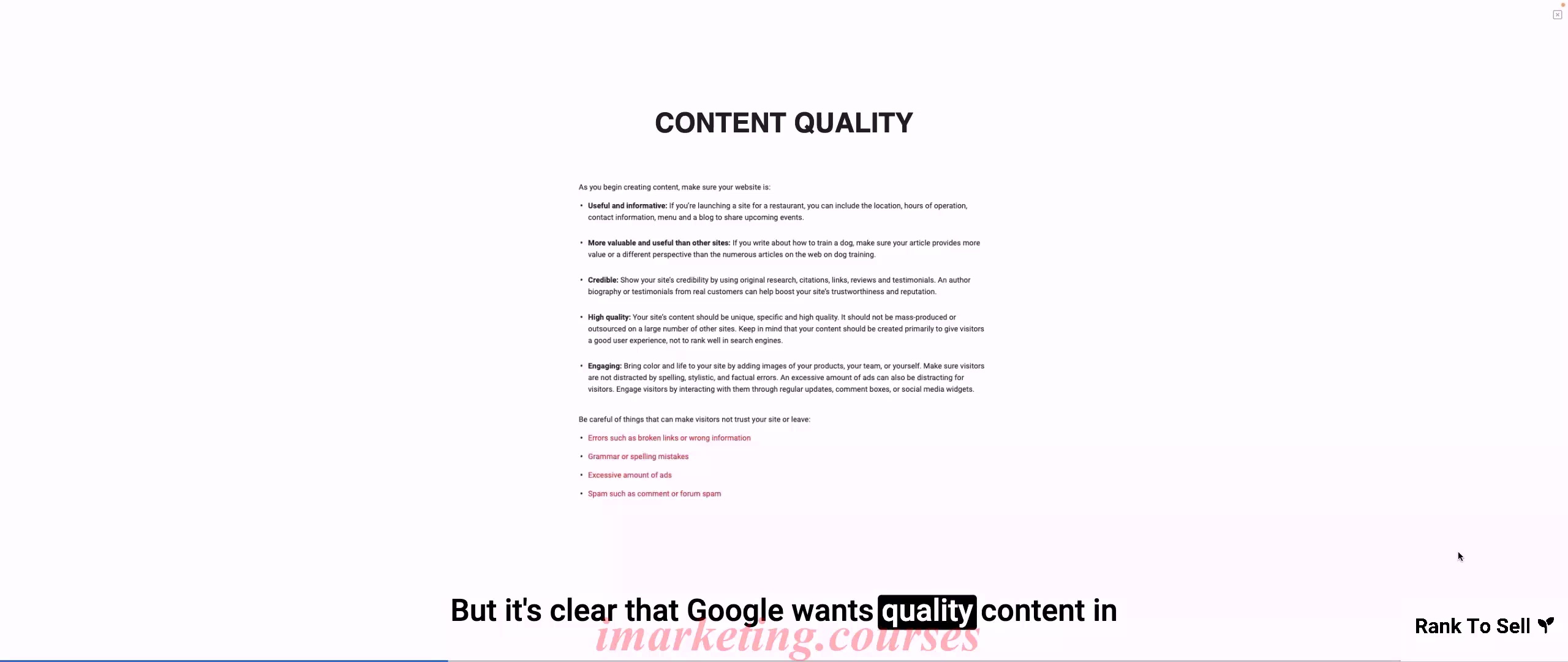
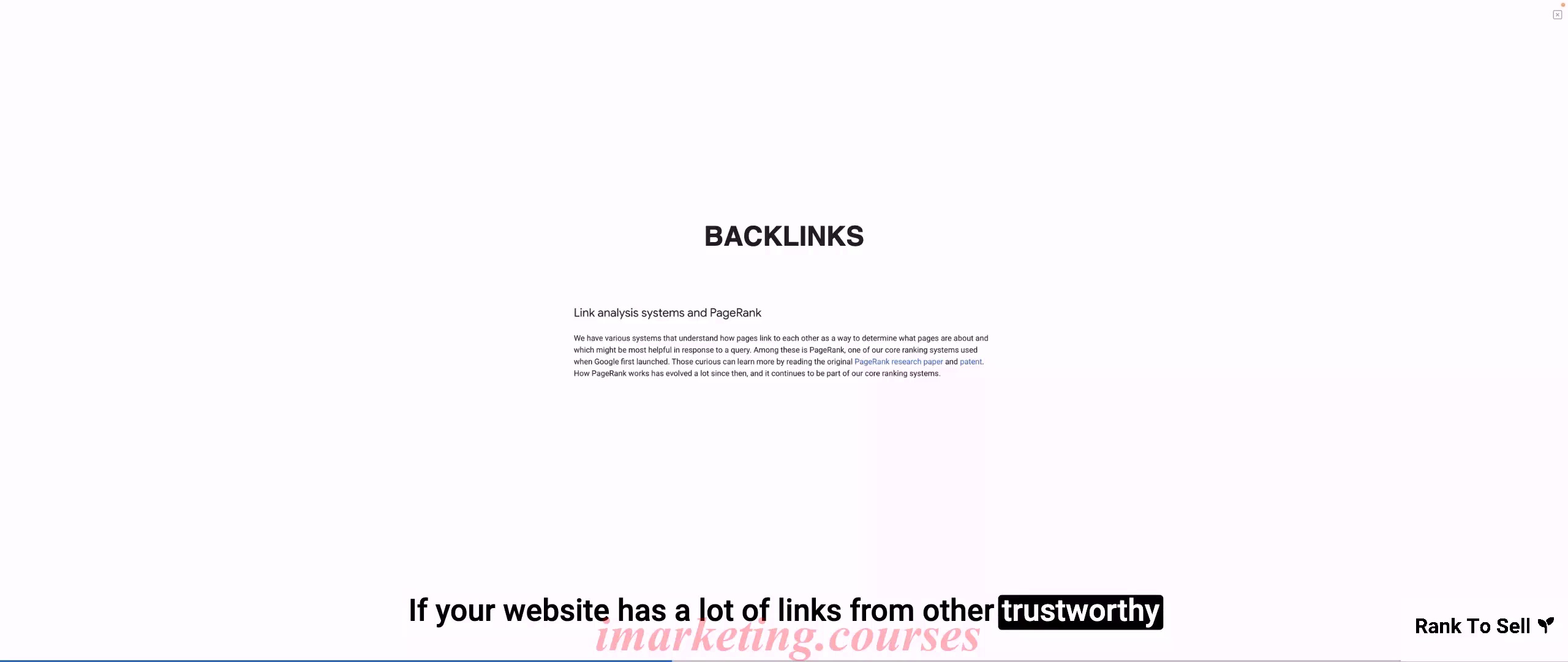
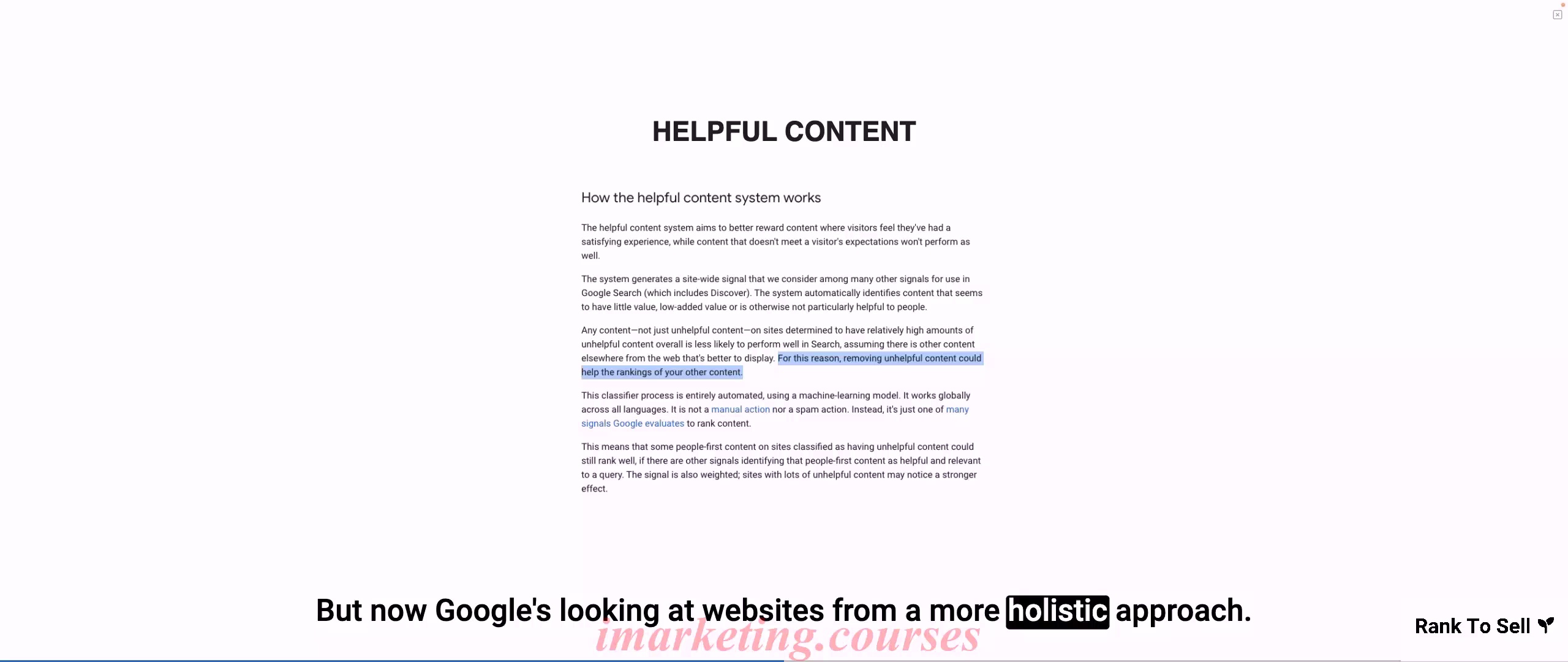
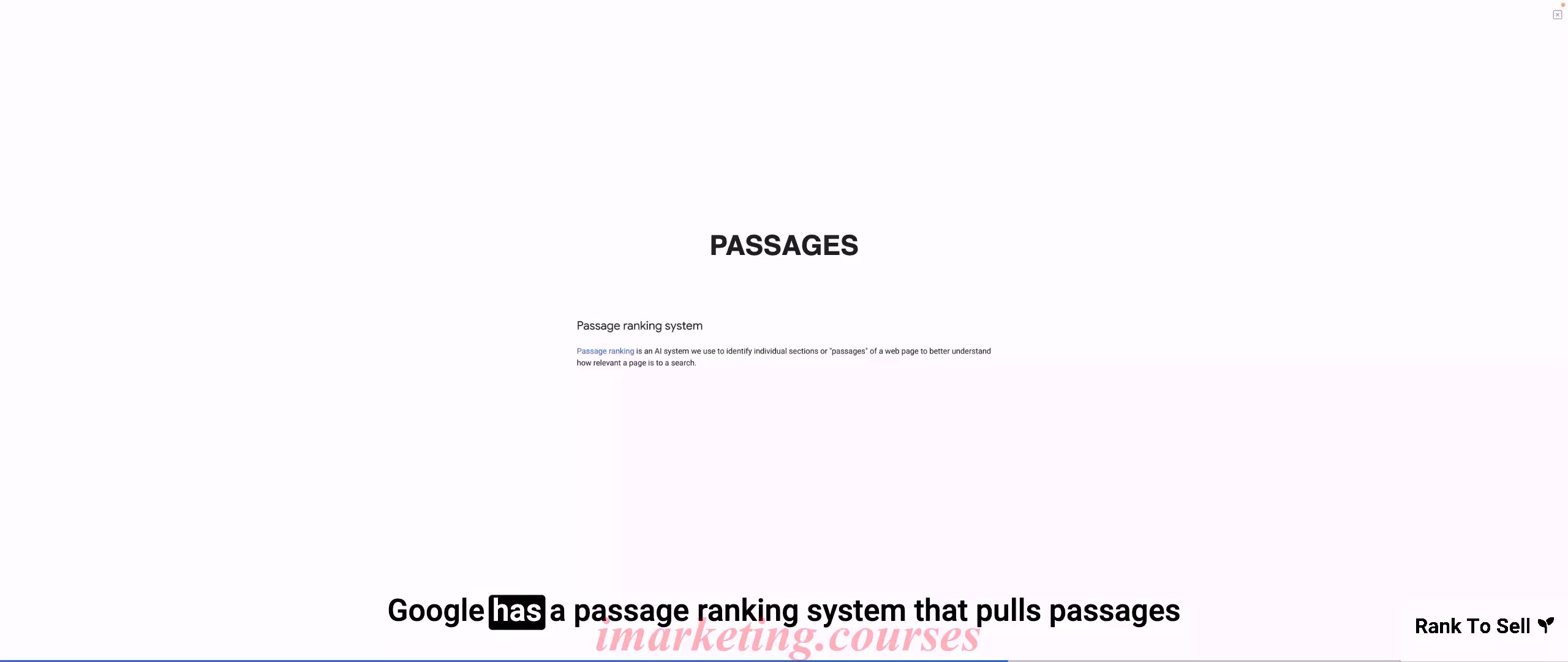
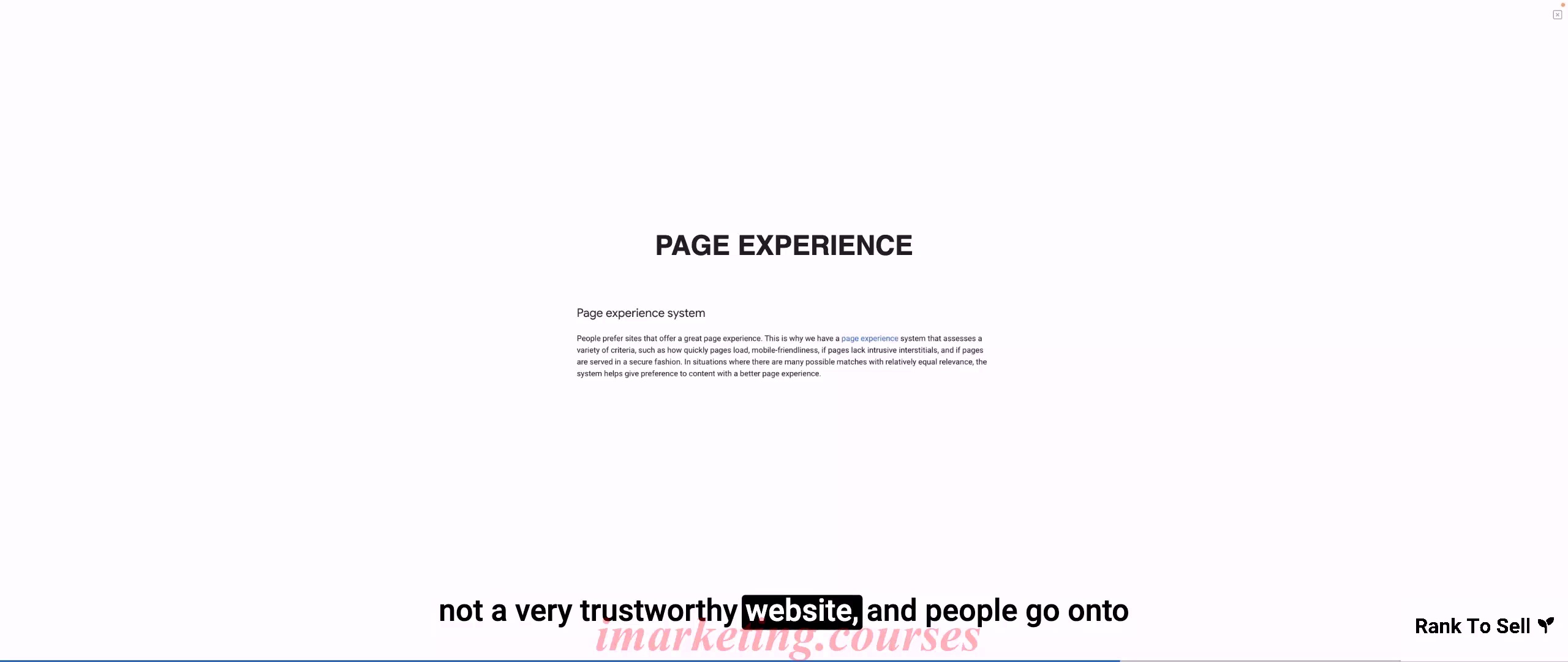
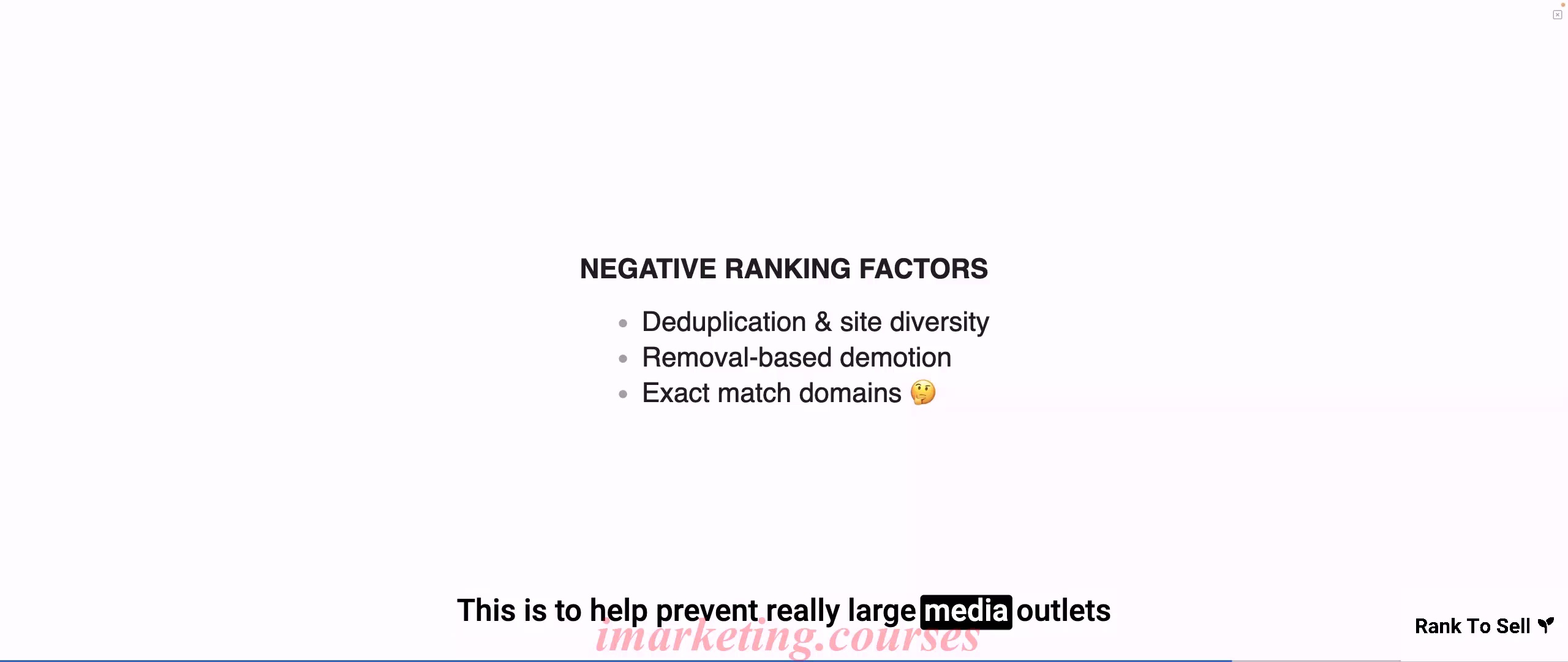
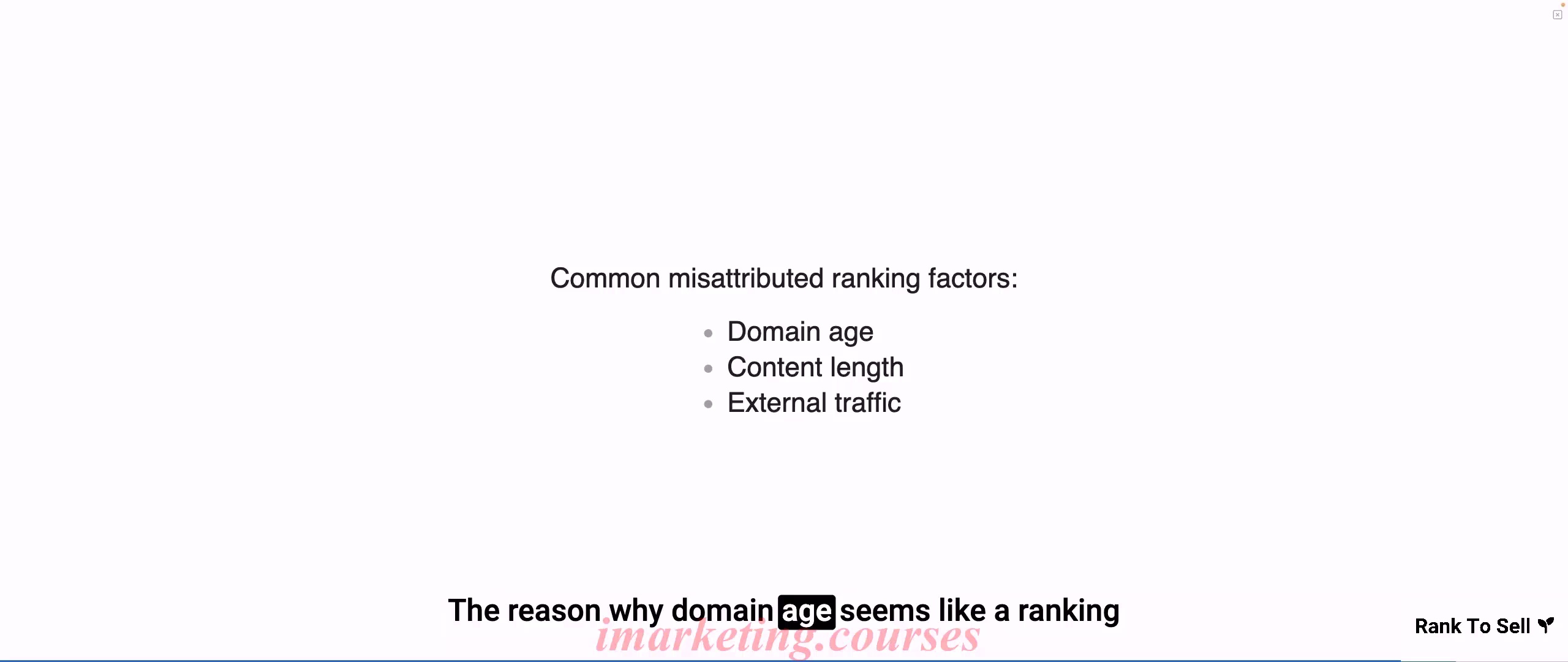
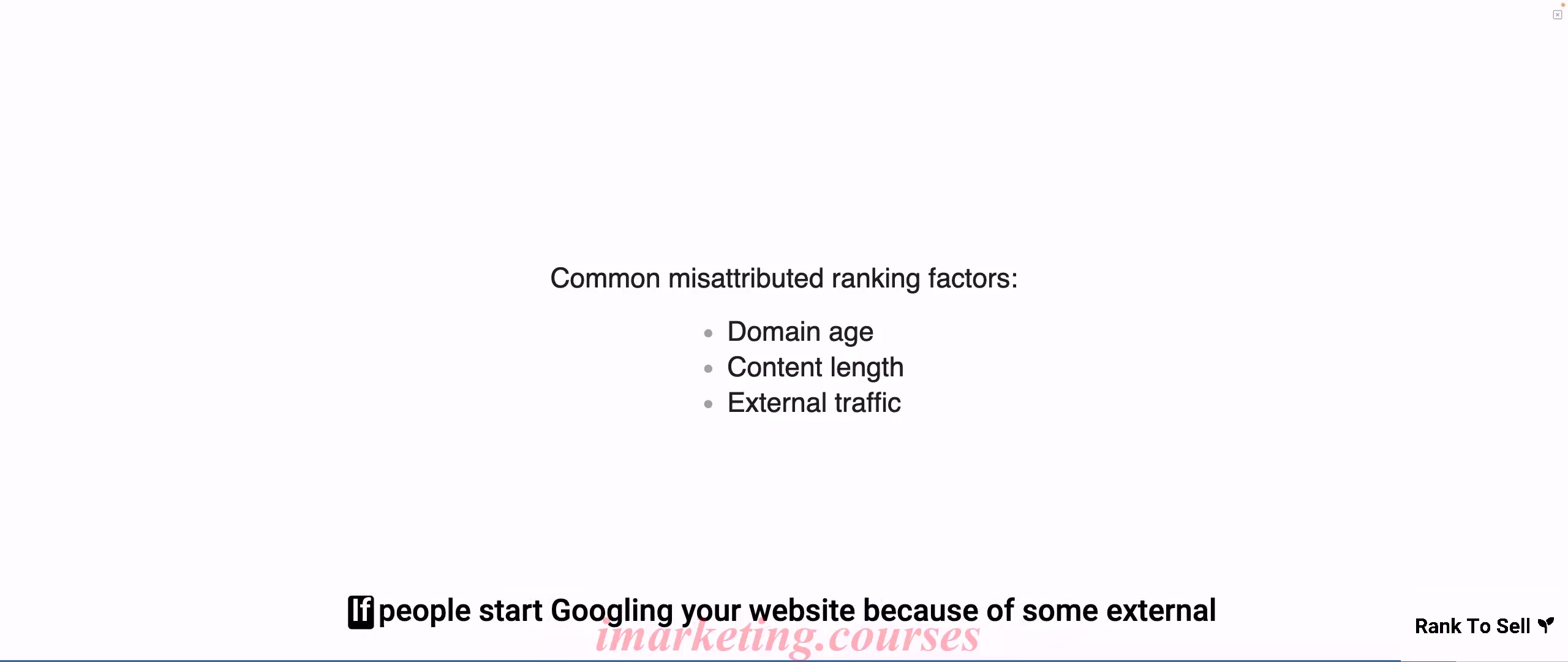
Ranking factors are specific elements Google uses to determine search rankings, while trust signals are secondary indicators of trustworthiness that can indirectly influence rankings.
Key Google ranking factors include:
- Content quality
- Keywords (in titles, URLs, and content)
- Backlinks from reputable sites
- Helpful, original content
- Passages pulled into search results
- Page experience and website design
Some common misconceptions are that domain age, content length, and external traffic directly influence rankings when they do not.
Trust signals like backlinks take time to build and can seem correlated with domain age. Viral content driving searches to a site can also seem like external traffic boosts rankings. But Google has clarified these are not direct ranking factors.
The narrator says reputable, useful backlinks and on-page content quality are central to rankings. Other trust signals like design and real-world value indicate to Google which sites will best serve users.
.Rank 2 Sell pt1 5 to pt2 3 - Part 2










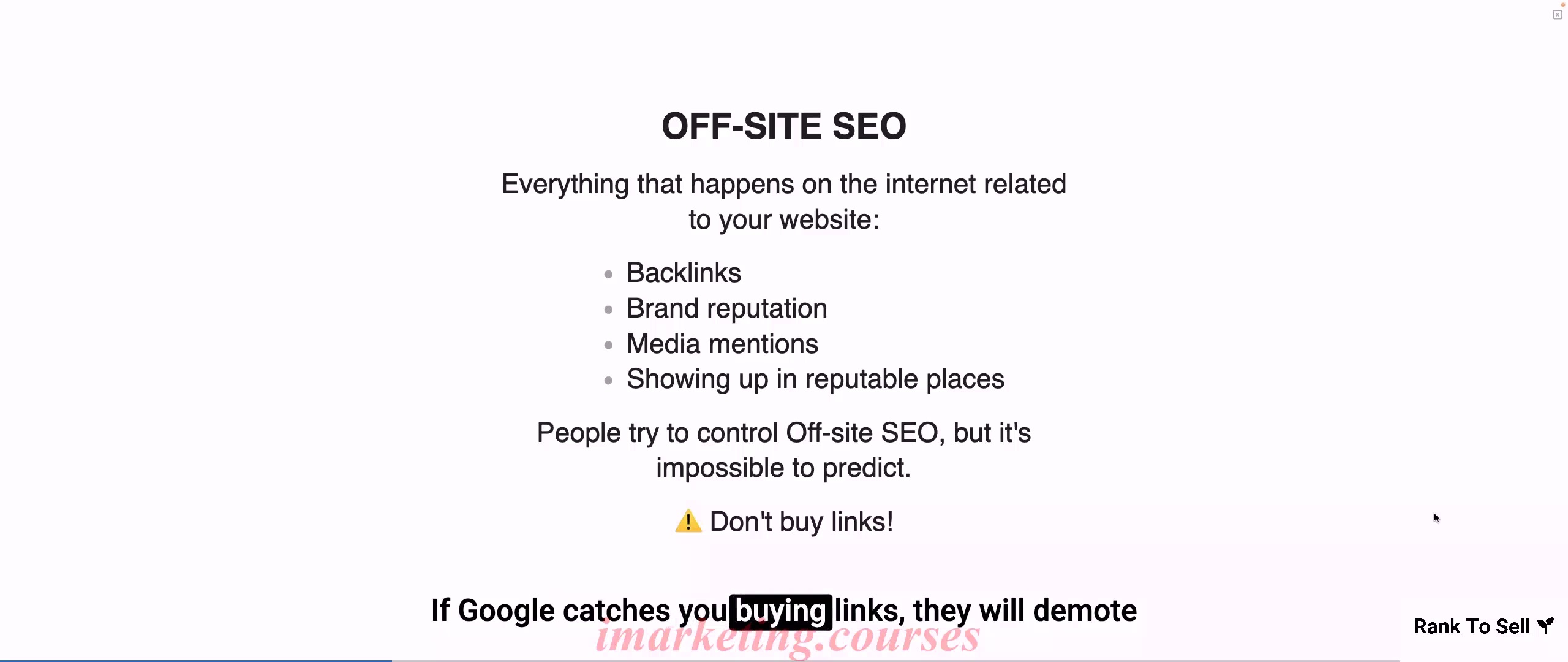
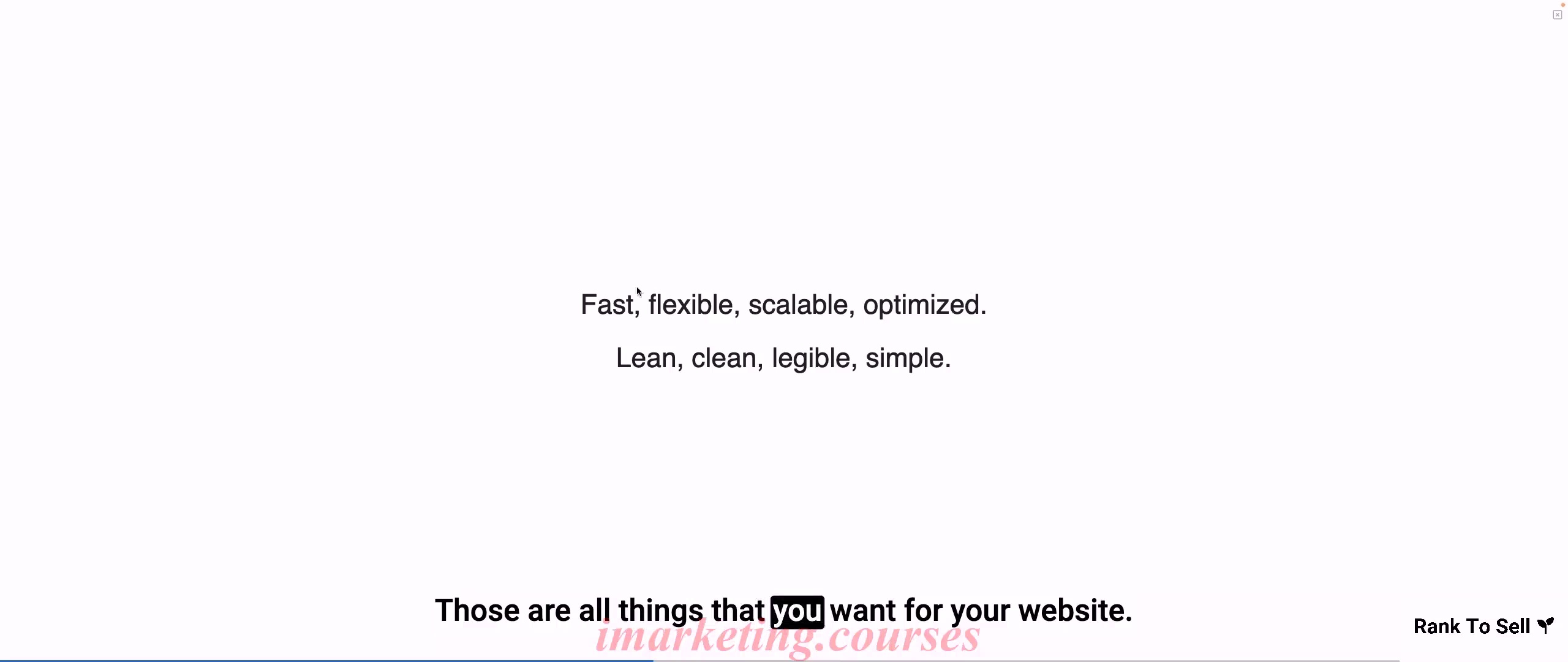
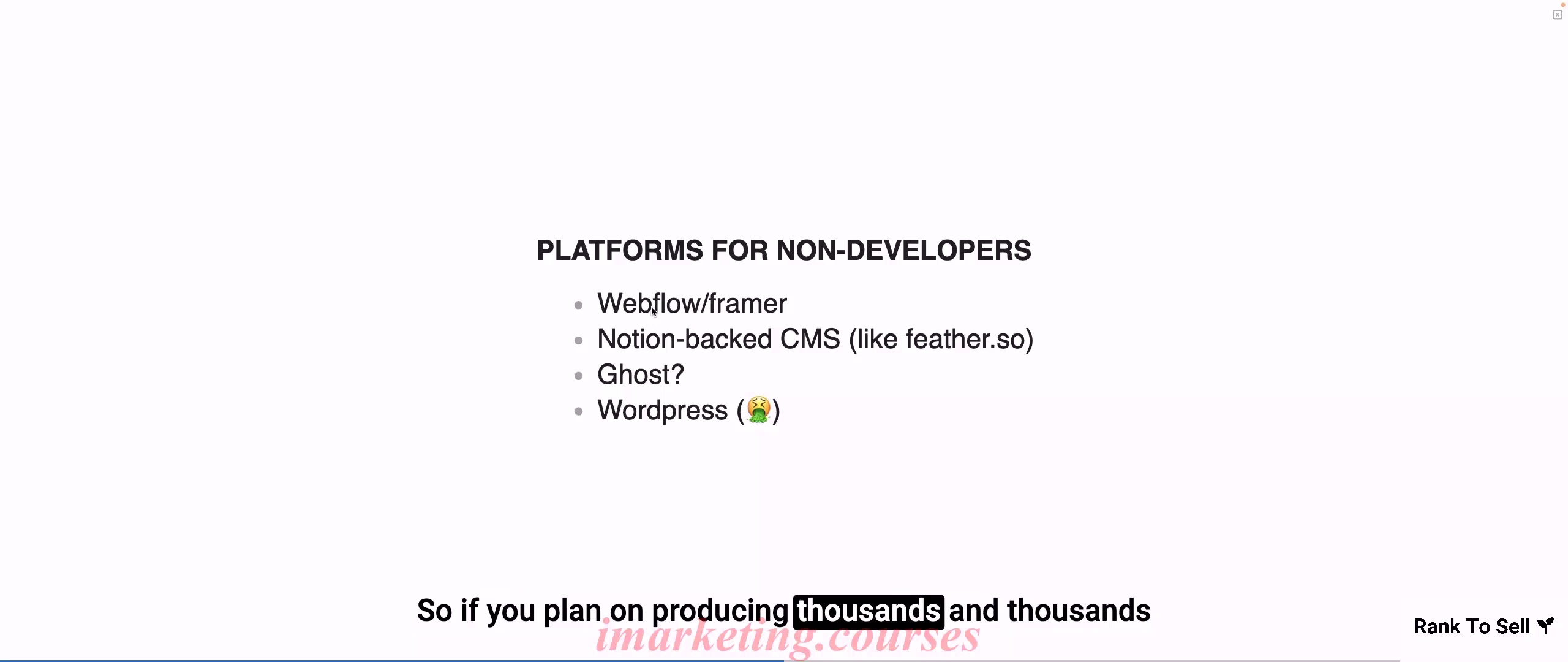
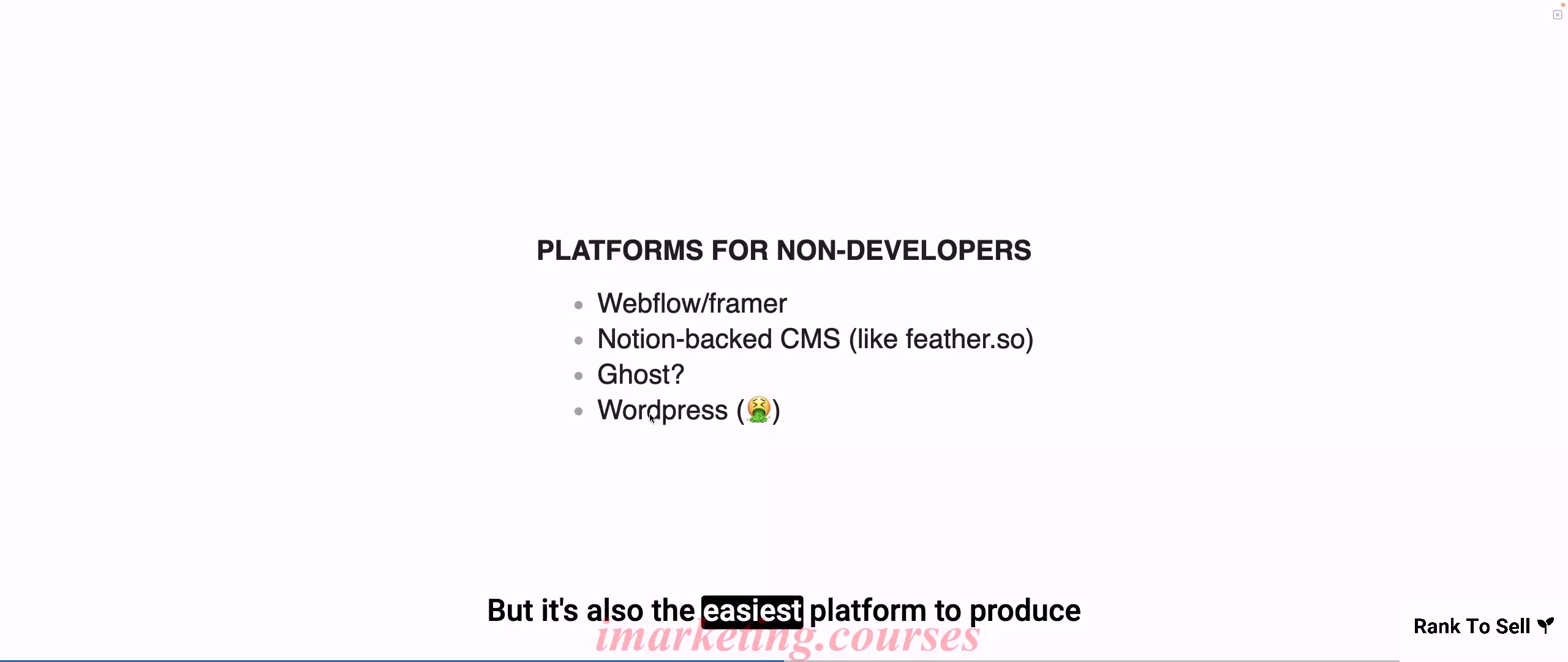
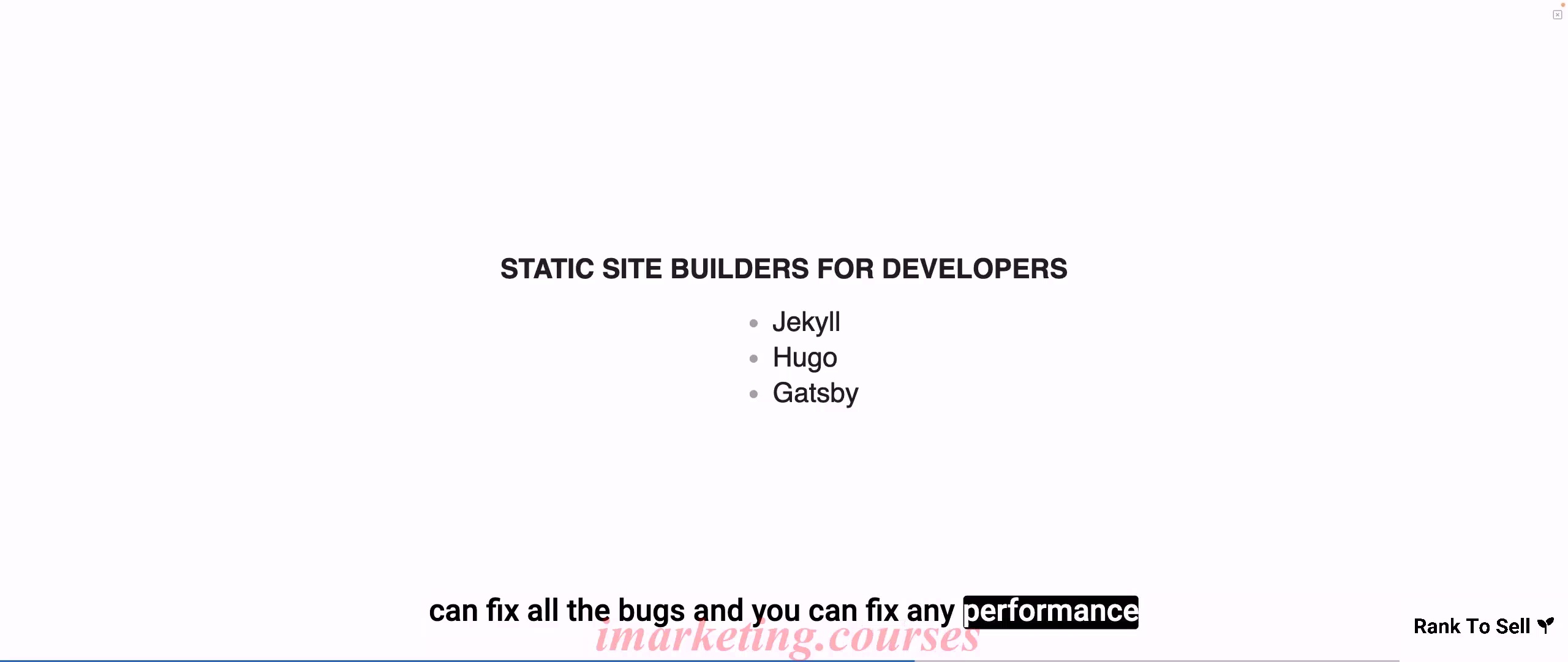
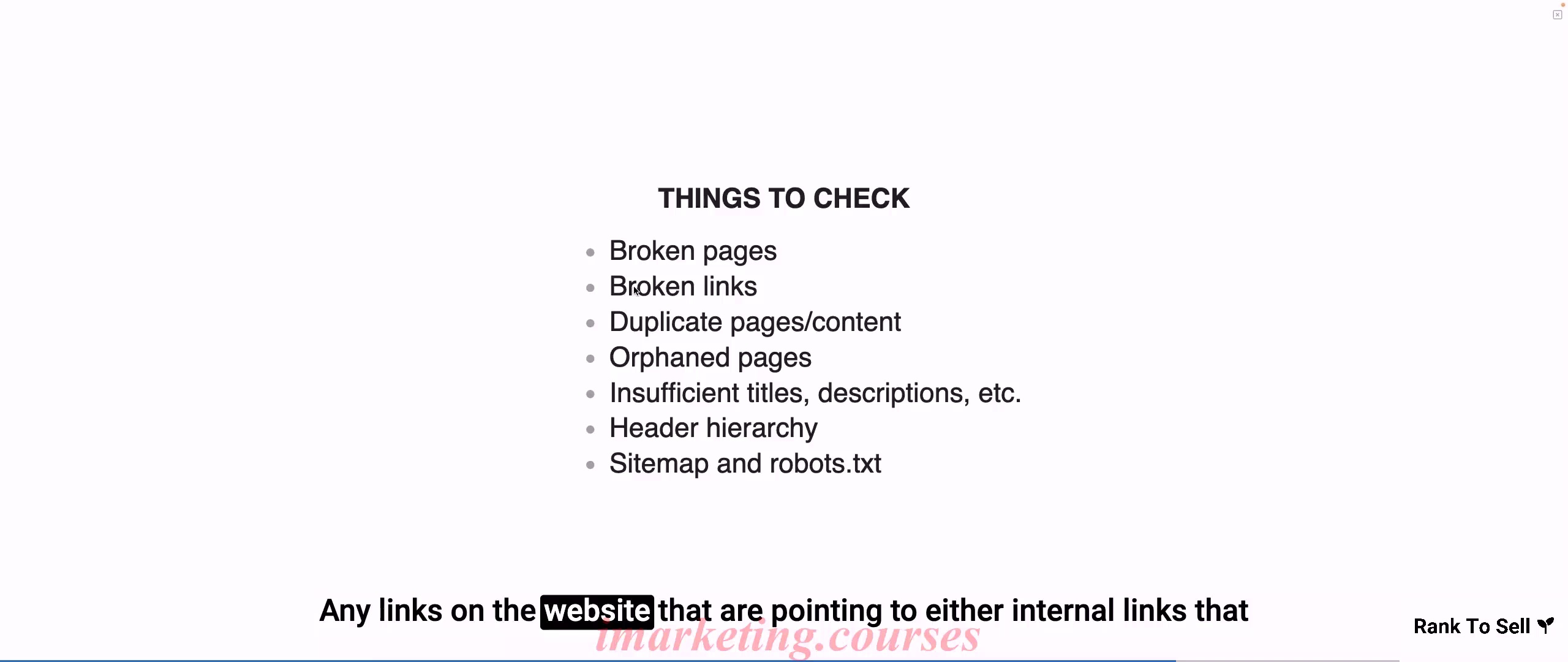
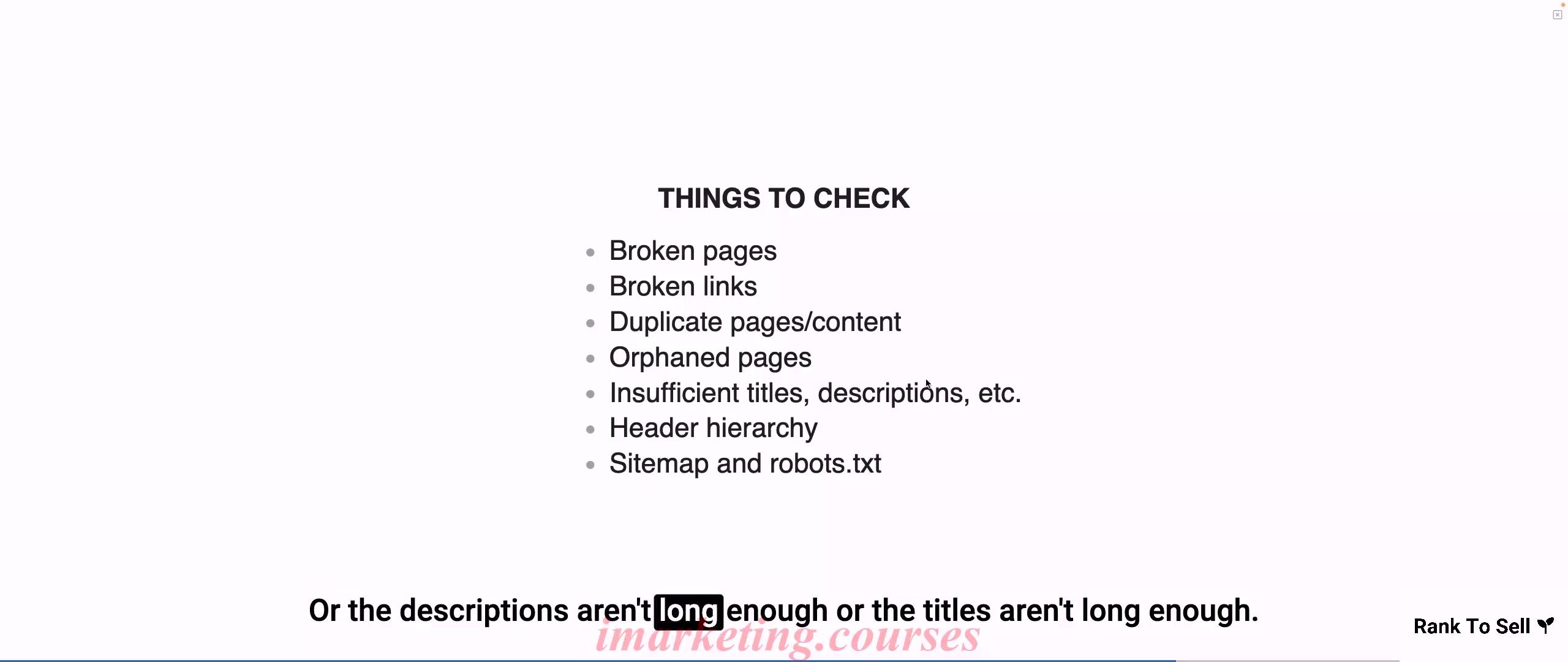
The narrator discusses setting up a website for SEO success by performing a website audit. There are two types of SEO: on-site SEO (things you control like content and site speed) and off-site SEO (things you don't control like backlinks). Do not buy links - this can get your site penalized by Google.
For on-site SEO, aim for a fast, flexible, scalable and optimized website. The design should be simple, clean and readable. Some good platforms for non-developers are Webflow, Framer, Notion-backed CMS sites, and Ghost (though the narrator hasn't seen many high-ranking Ghost sites). Avoid WordPress - it can easily become bloated. For developers, use a static site generator like Jekyll or Hugo.
When auditing a site, check for broken pages, duplicate content, orphan pages without internal links, insufficient titles/descriptions, improper header hierarchy, and that your XML sitemap and robots.txt are correctly set up. Also evaluate user experience - text size, color contrast, working links/images, call to action density. Use tools like Ahrefs, SiteChecker and PageSpeed Insights.
.Rank 2 Sell pt1 5 to pt2 3 - Part 3


















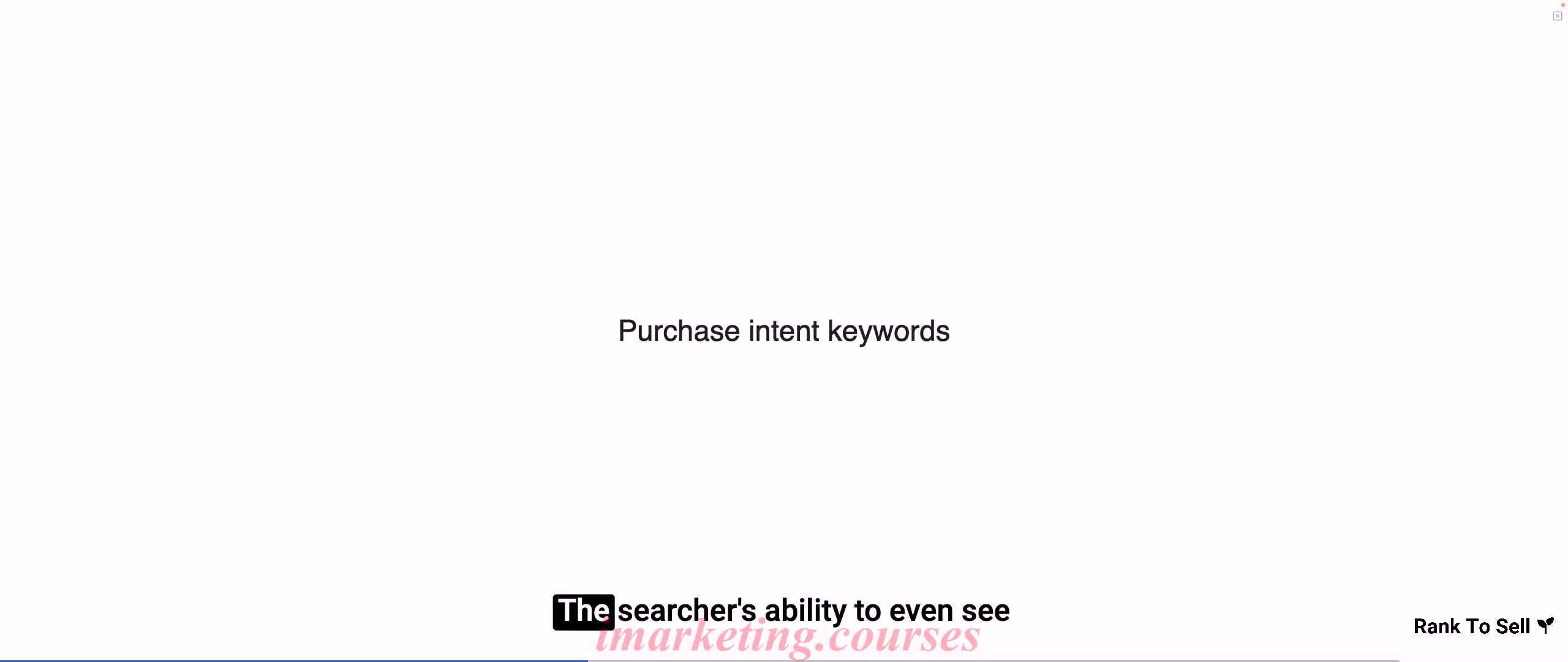
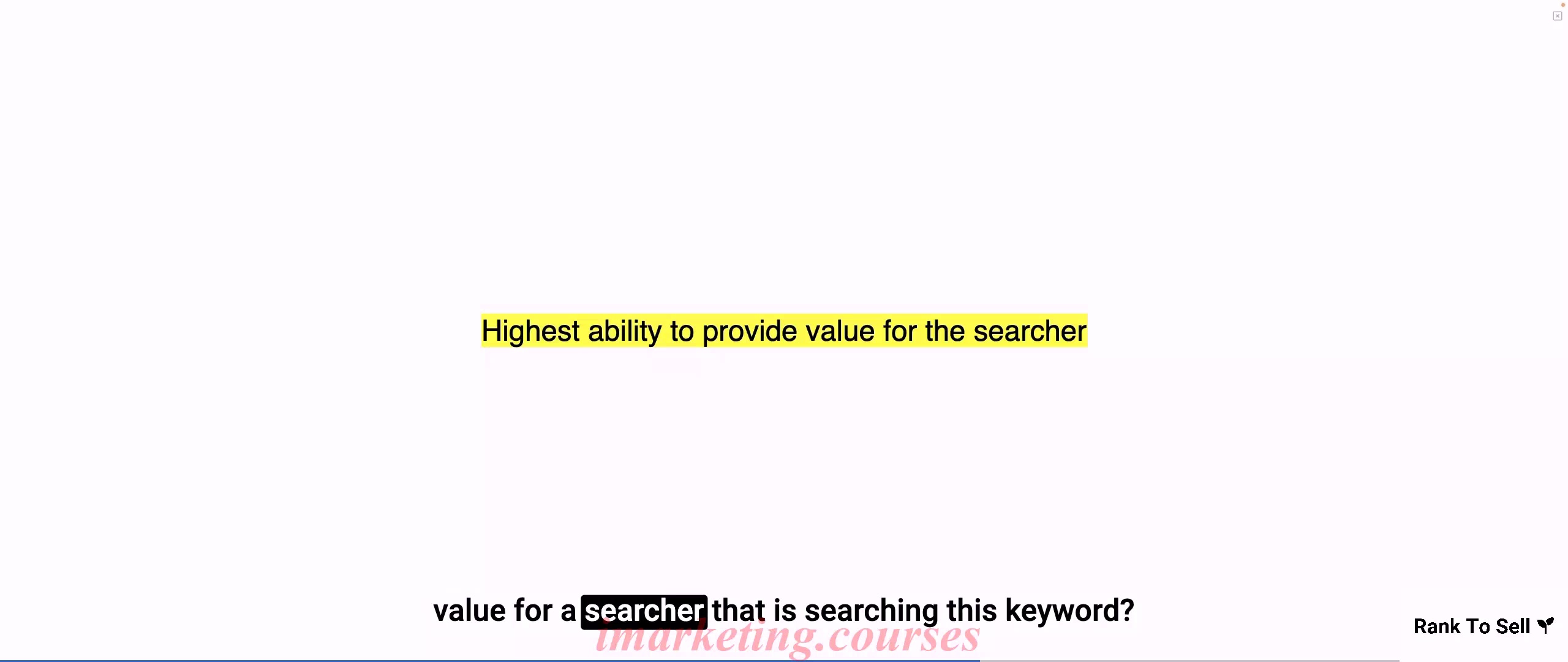
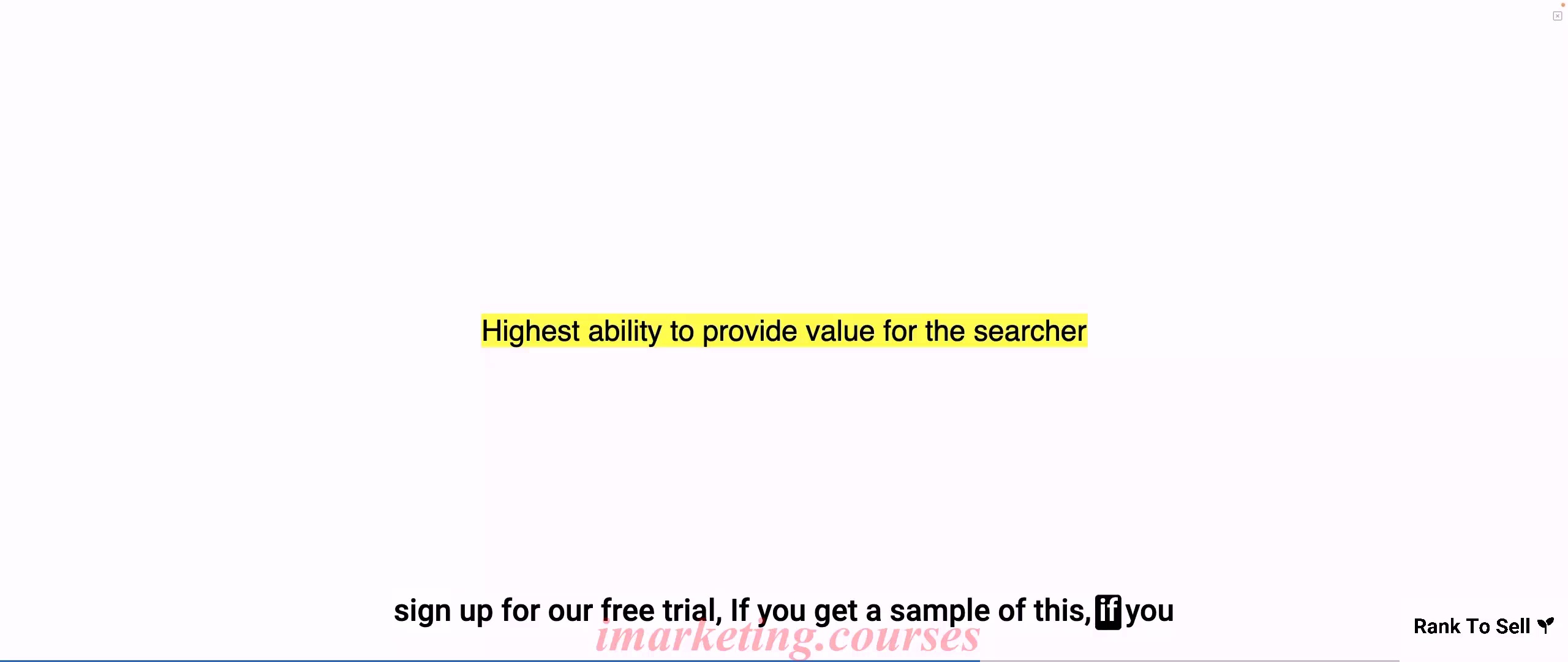

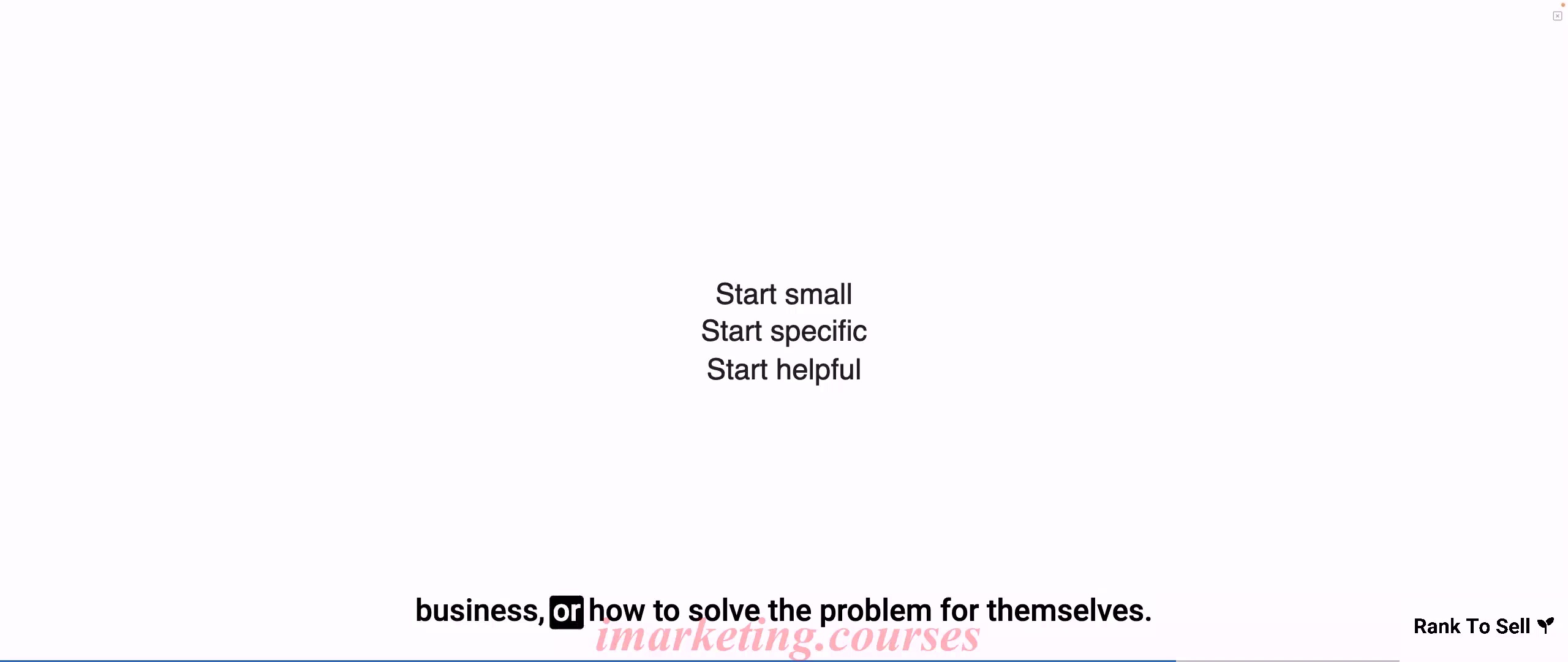
The narrator describes three common approaches to SEO keyword research that he believes are flawed:
1. Trying to rank for ultra-competitive short-tail keywords like "SEO". This is impressive but not a realistic goal for most businesses.
2. Only caring about high-intent "purchase keywords". These tend to have lots of paid search competition, making it hard to rank organically.
3. Pursuing high-volume but low-value keywords where searchers have no intent to purchase. This brings useless traffic.
Instead, the narrator recommends choosing keywords where you can provide the most value to searchers. This means:
1. You have unique expertise to helpfully answer the searcher's question.
2. You can provide a solution via your product or service after informing them.
Additionally, he advises starting with long-tail keywords to build authority. Then you can expand to more competitive terms. The key is serving people with specific questions, not attempting overly broad keywords initially.
In summary, the keyword strategy is: help searchers by answering specific questions, showcase your offerings as solutions, start with niche long-tail terms, and expand over time as you build authority.
.Rank 2 Sell pt1 5 to pt2 3 - Part 4
























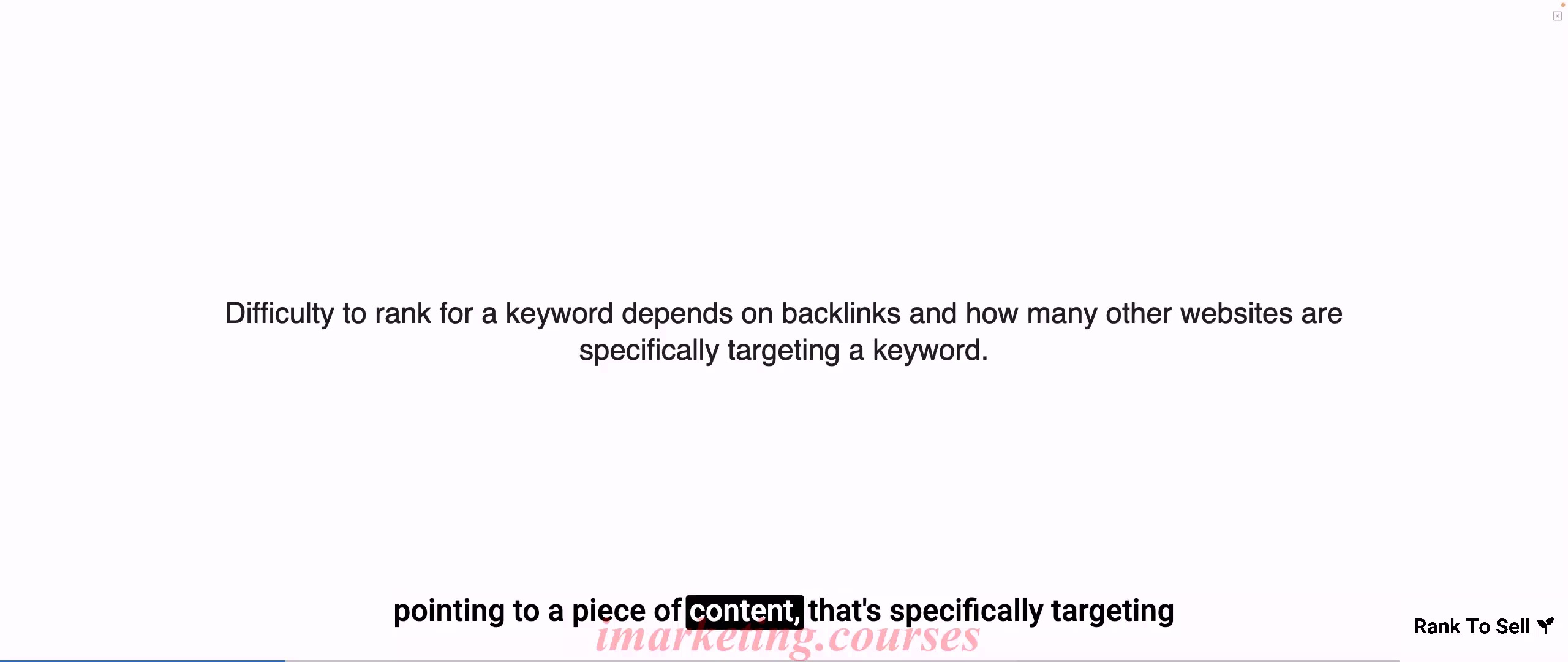
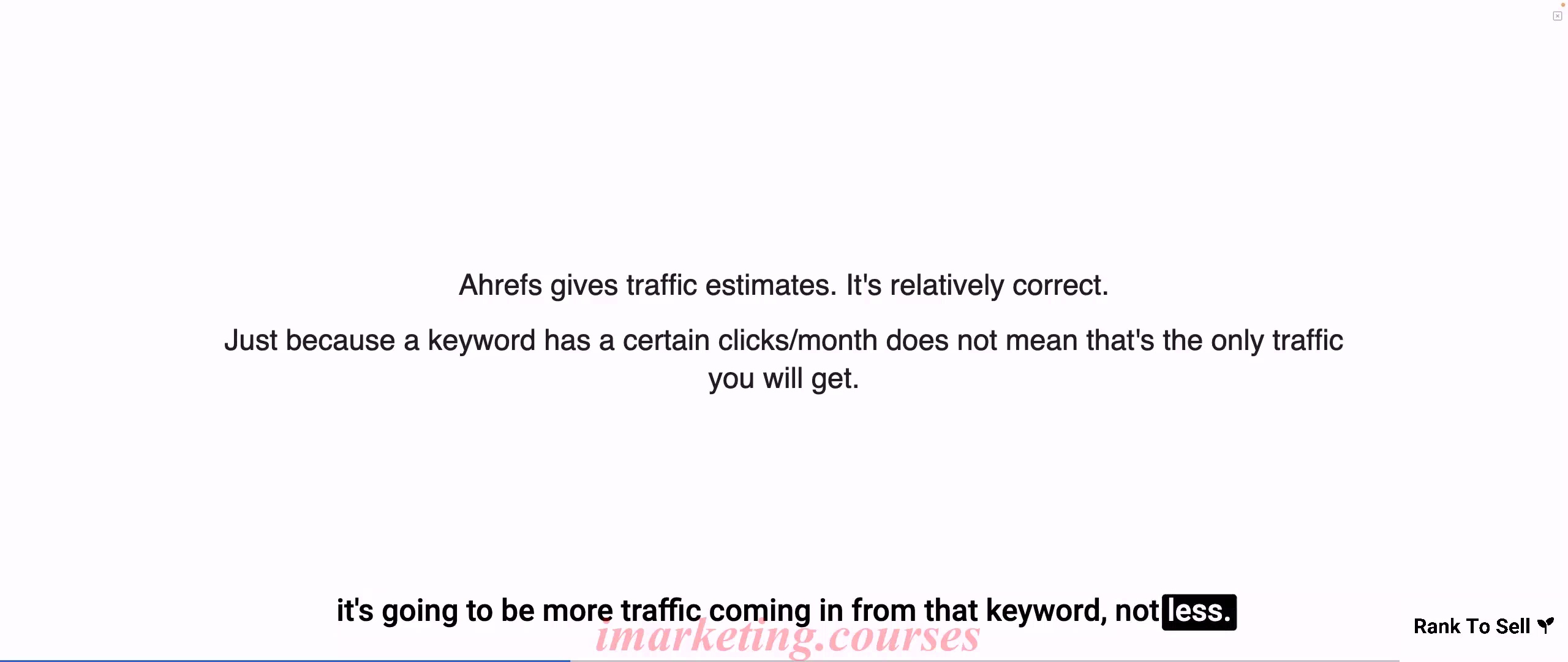
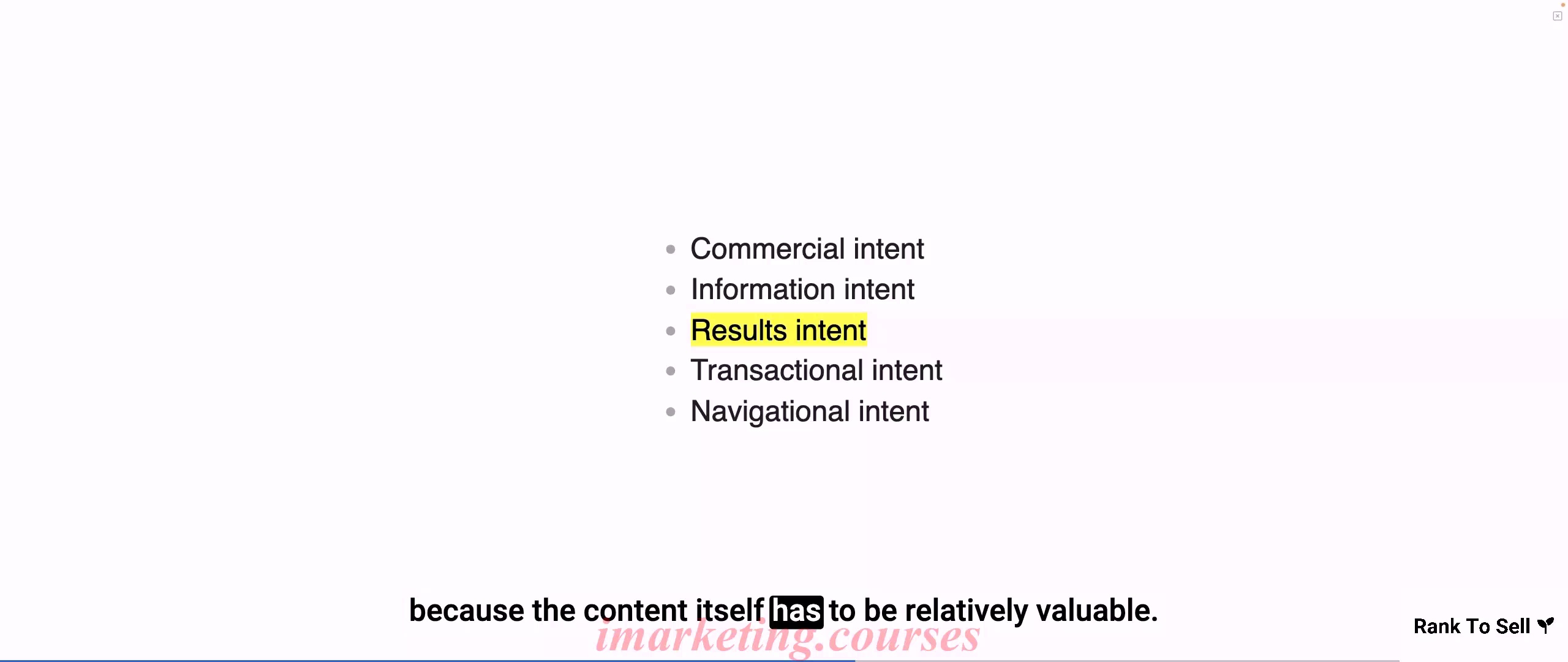
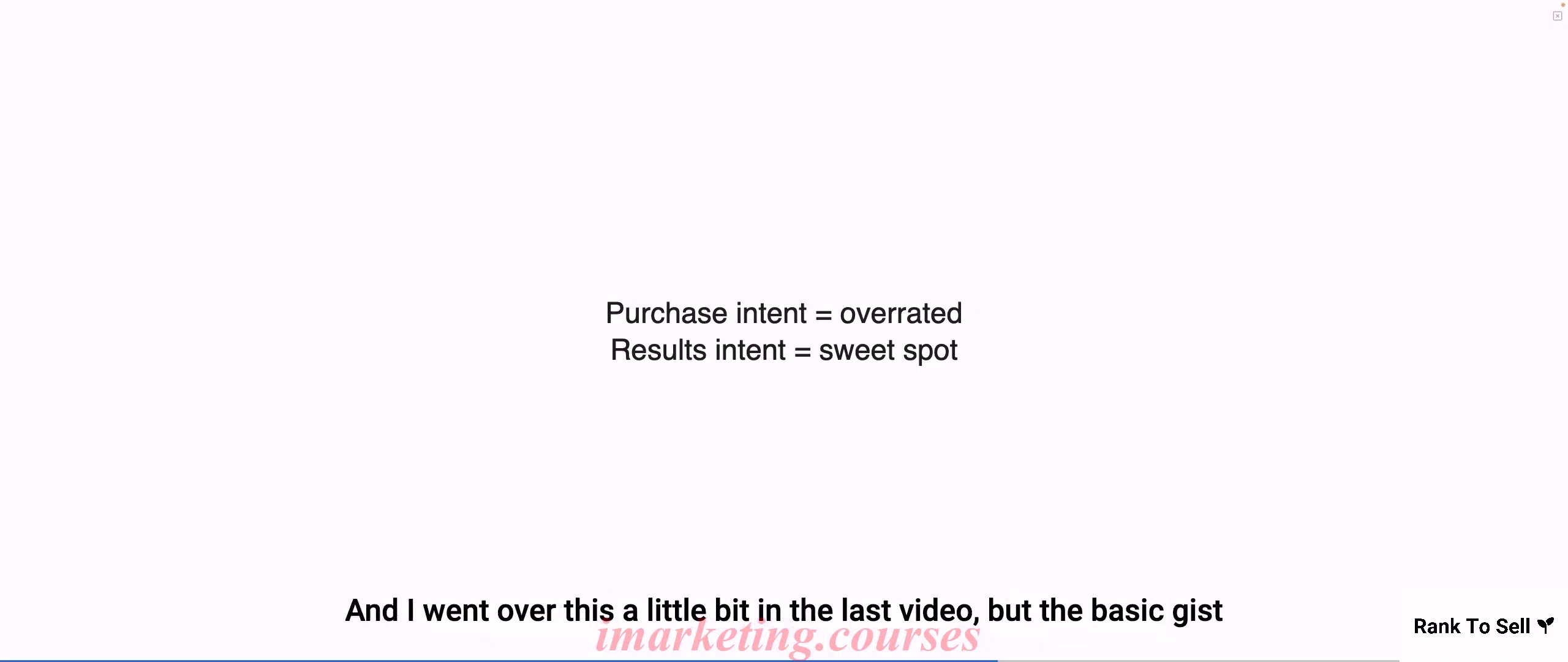
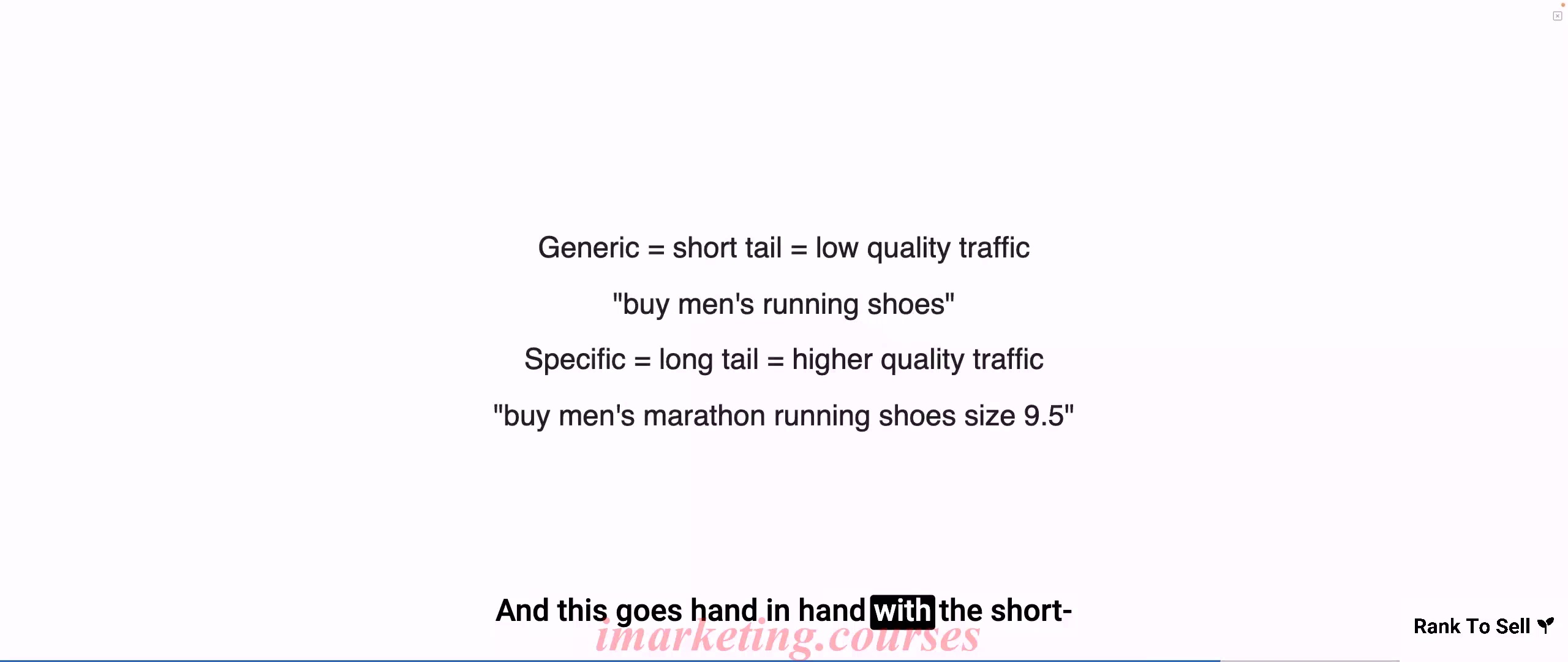
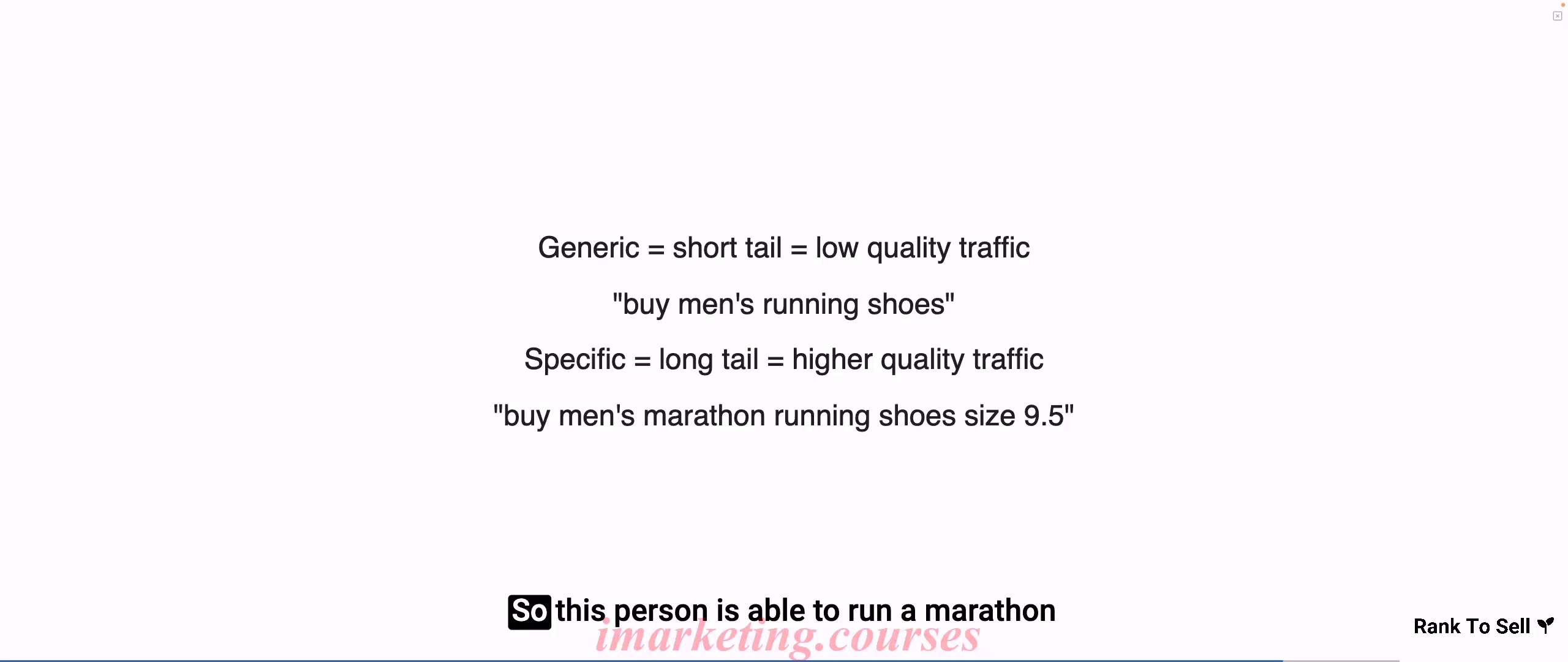
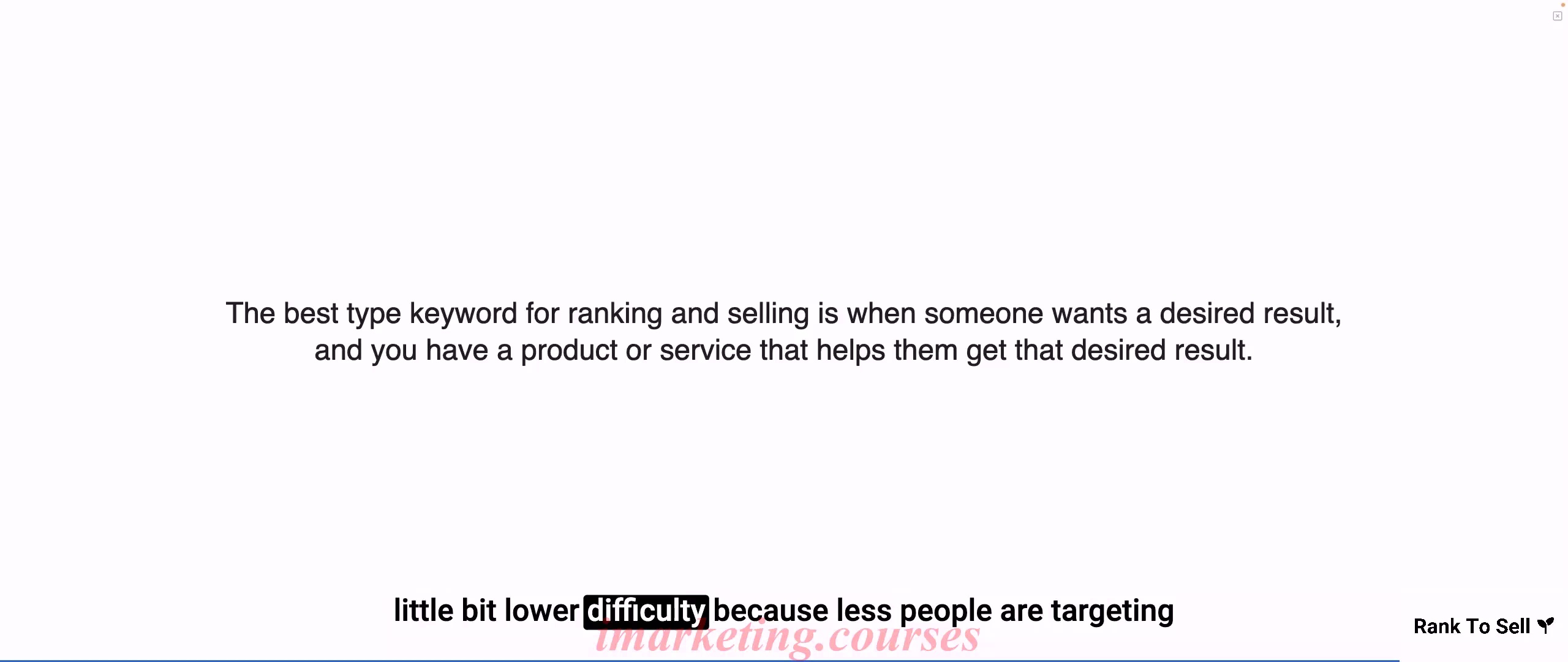
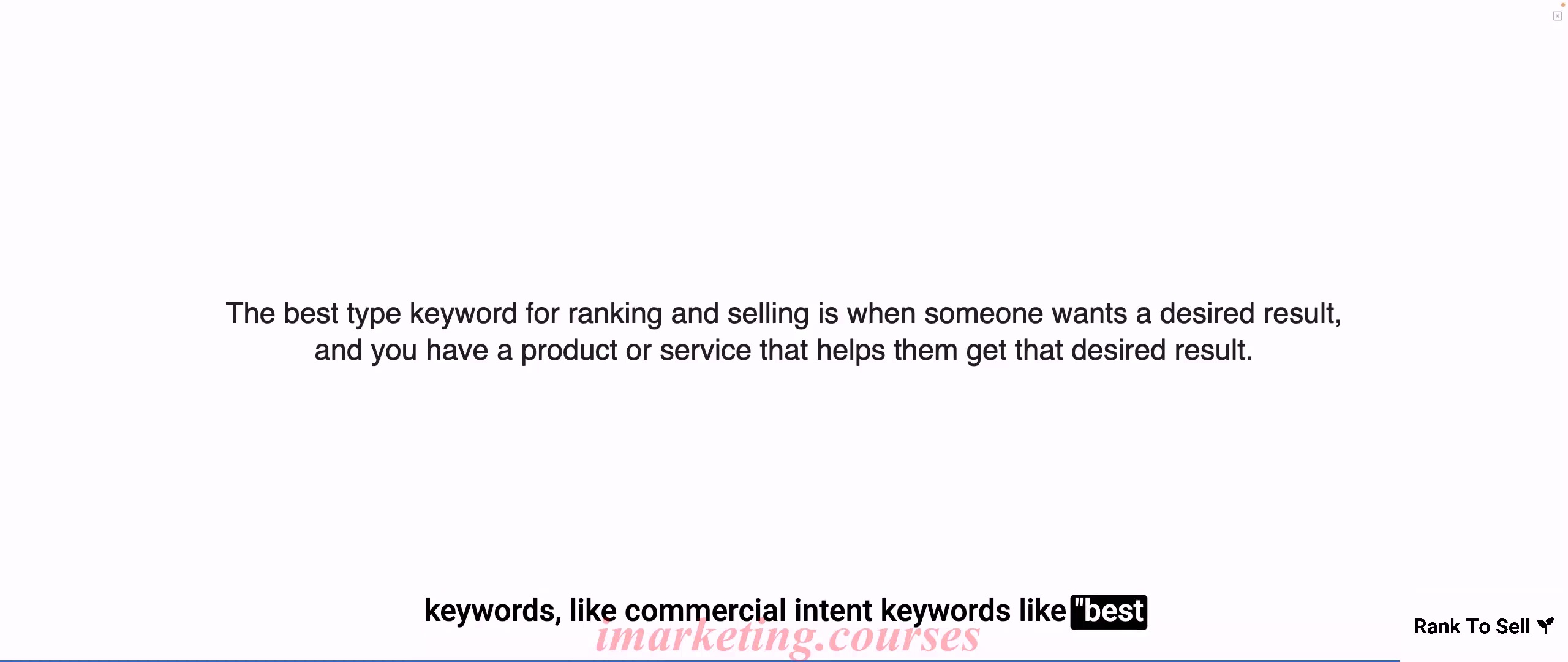
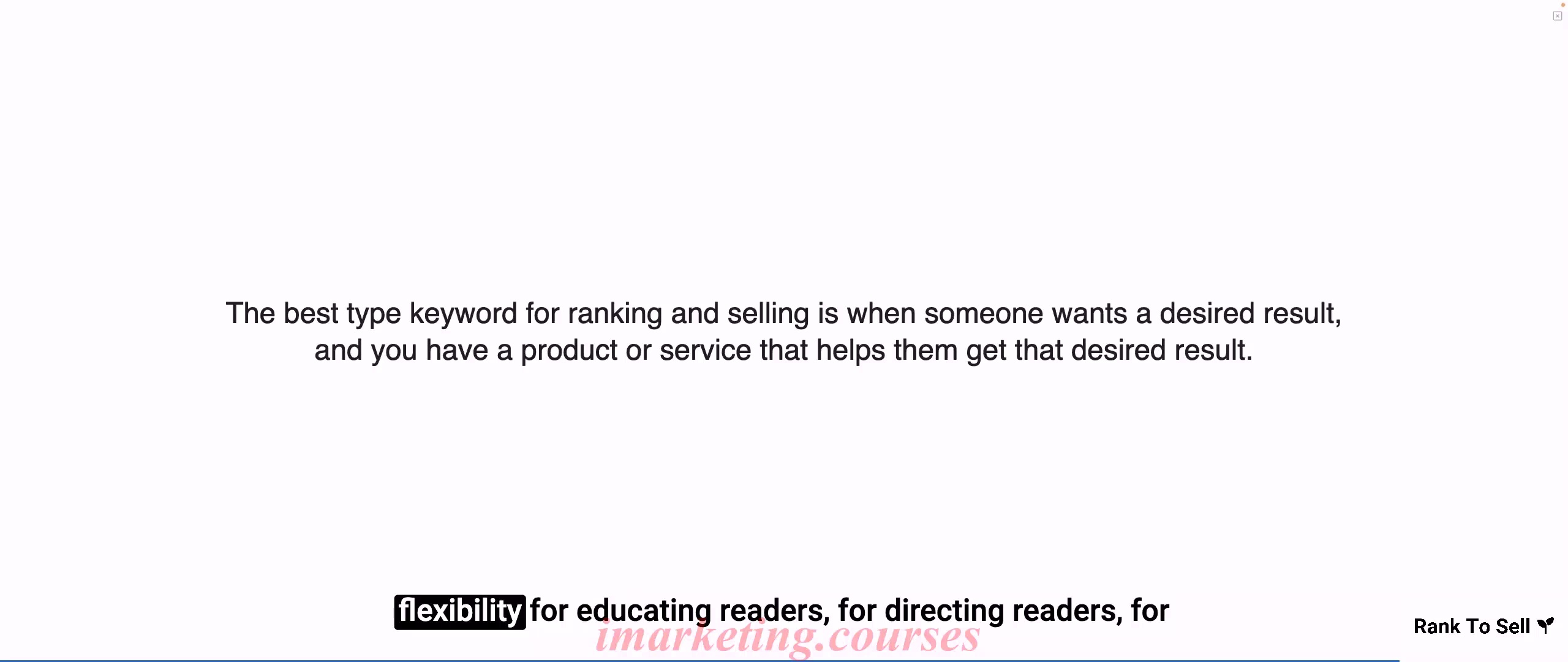
The narrator discusses several aspects to consider when determining if a keyword is "great" to target in search engine optimization (SEO).
The main factors are:
- Keyword difficulty - harder to rank for keywords have more sites targeting them and more backlinks pointing to content optimized for that term.
- Search volume - higher is better, but even low search volume keywords can drive decent traffic.
- Intent - "results intent" keywords where people want step-by-step guidance tend to convert better than high commercial intent terms.
- Specificity - longer, more specific keywords indicate a more targeted search so you can create content better tailored to those users.
The narrator concludes the "best" keywords are relatively easy to rank for, have high specificity, indicate users want a result (like a how-to guide), and make it easy to provide unique and useful content while ultimately pitching your product or service as the solution.
.Rank 2 Sell pt1 5 to pt2 3 - Part 5


































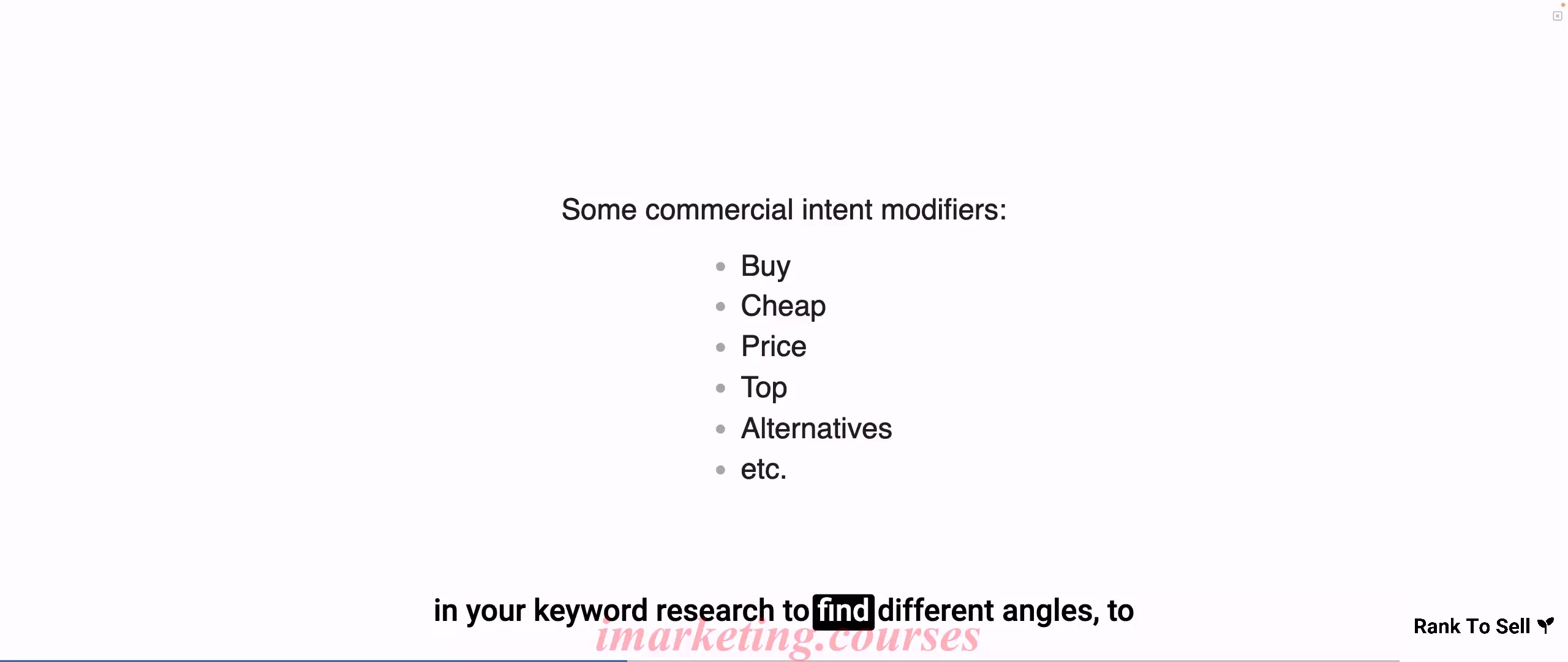
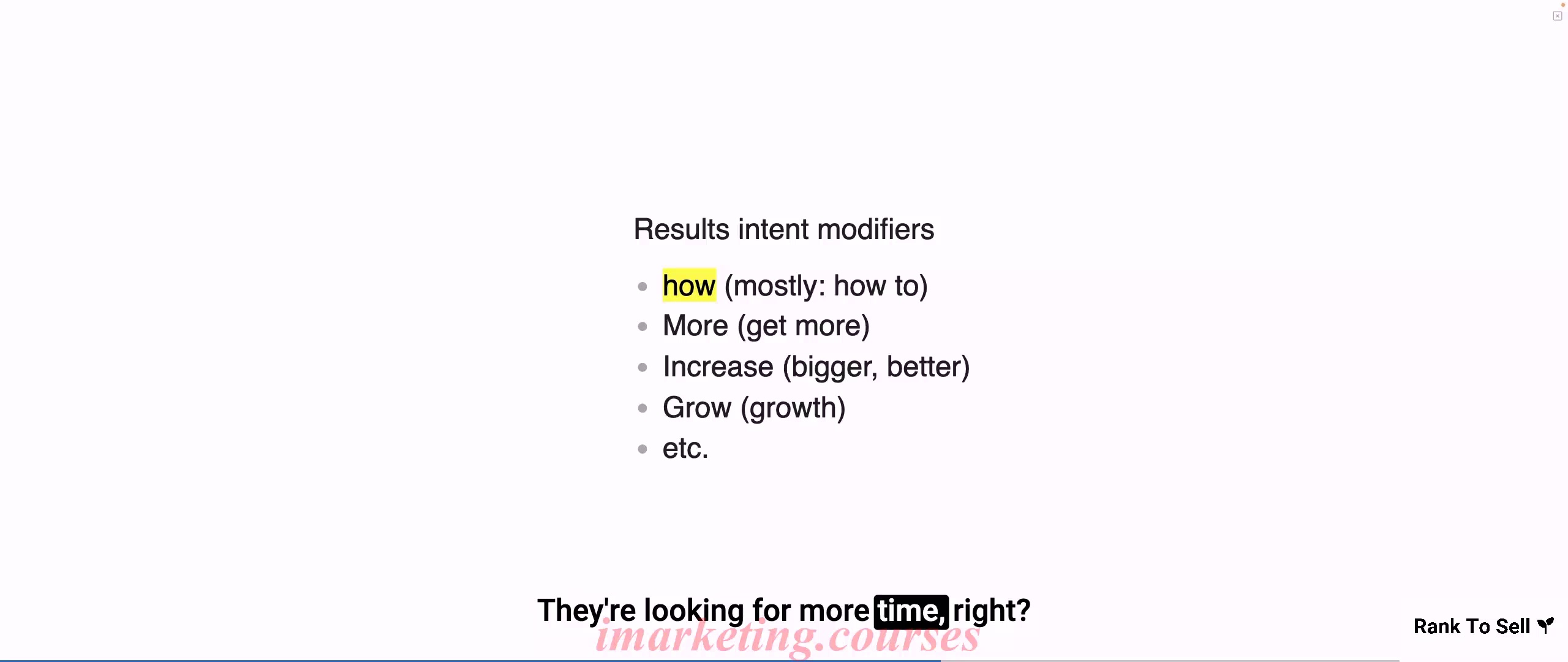
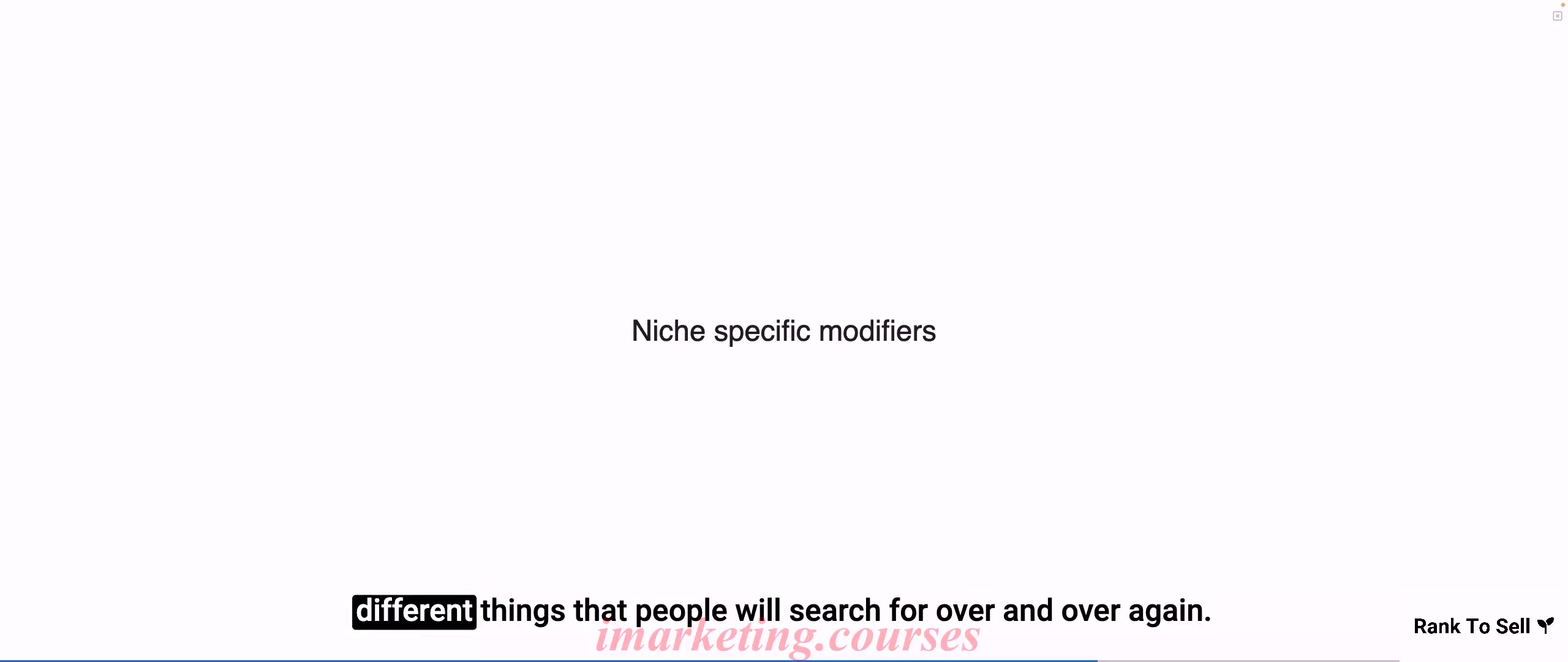

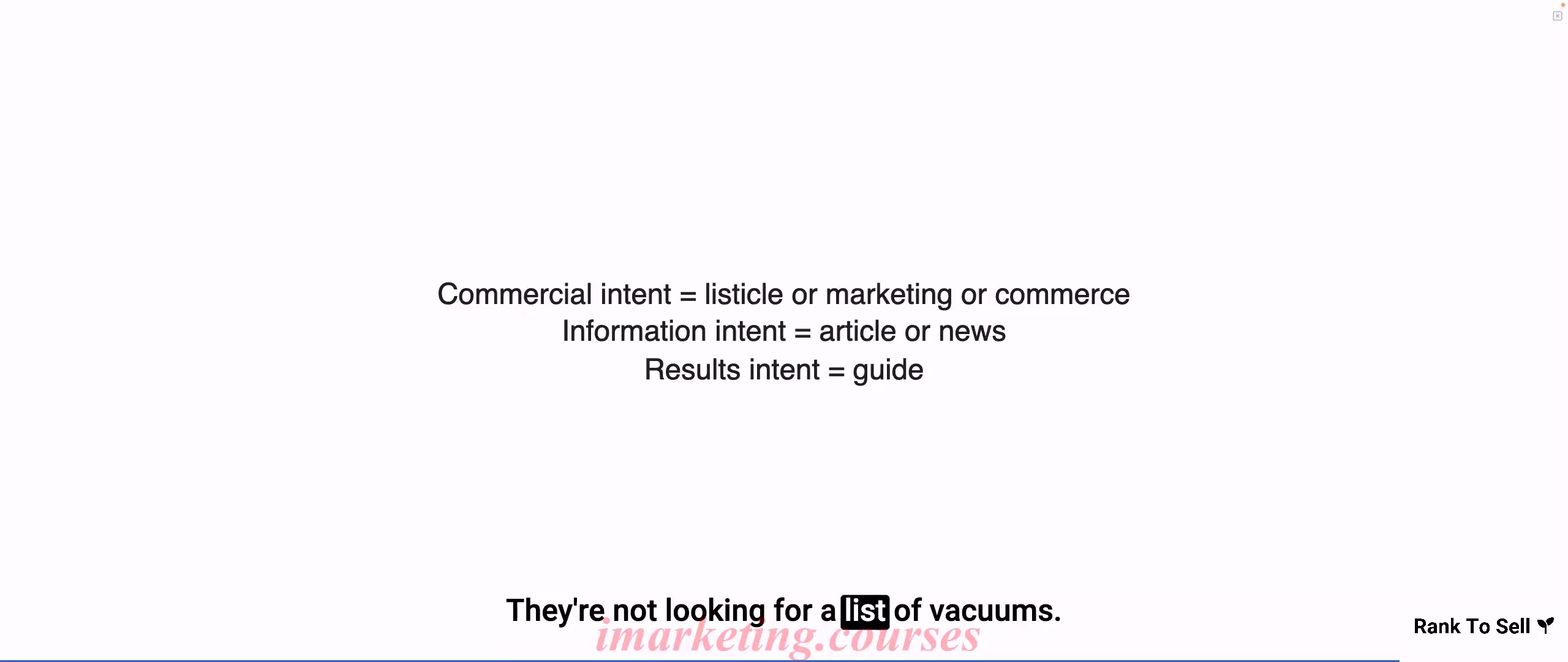
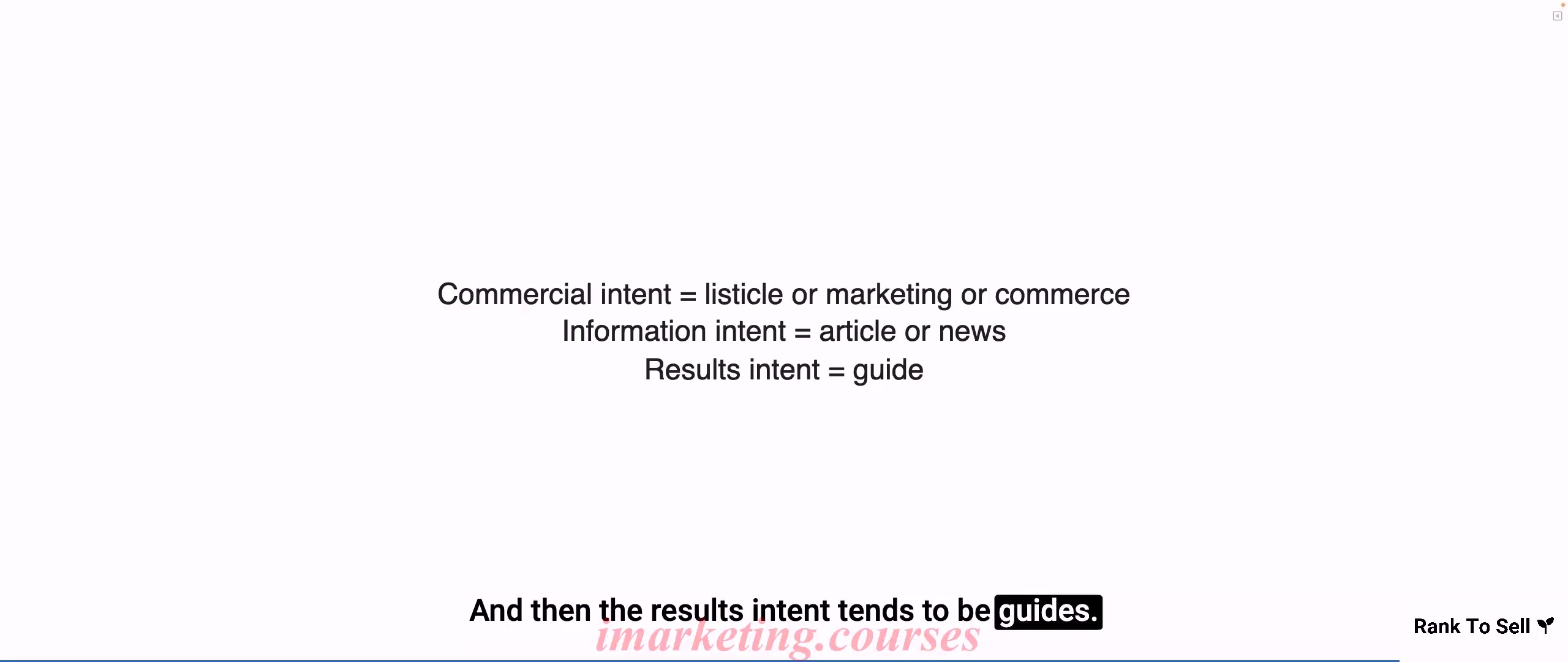
Keyword modifiers are commonly used words that make keyword research easier. Some examples are best, cheap, top, and alternatives. There are commercial, informational, and results intent modifiers.
Commercial intent modifiers indicate someone wants to purchase something, like buy, cheap, price, top, and alternatives.
Informational intent modifiers are typically the 5 Ws - who, what, where, when and why. These indicate someone is looking for information.
Results intent modifiers are often how-to phrases. Other examples are more, increase, bigger, better, grow, and growth. These indicate someone wants a specific result.
There are also niche-specific modifiers unique to certain industries. Pay attention to search patterns to identify valuable niche keywords.
Different content types rank for different keyword intents. Articles and news content rank for informational queries. Listicles and marketing pages rank for commercial intent. Guides rank for results intent.
Video and images can also rank well. Optimize images and videos with keyword research as well.
.